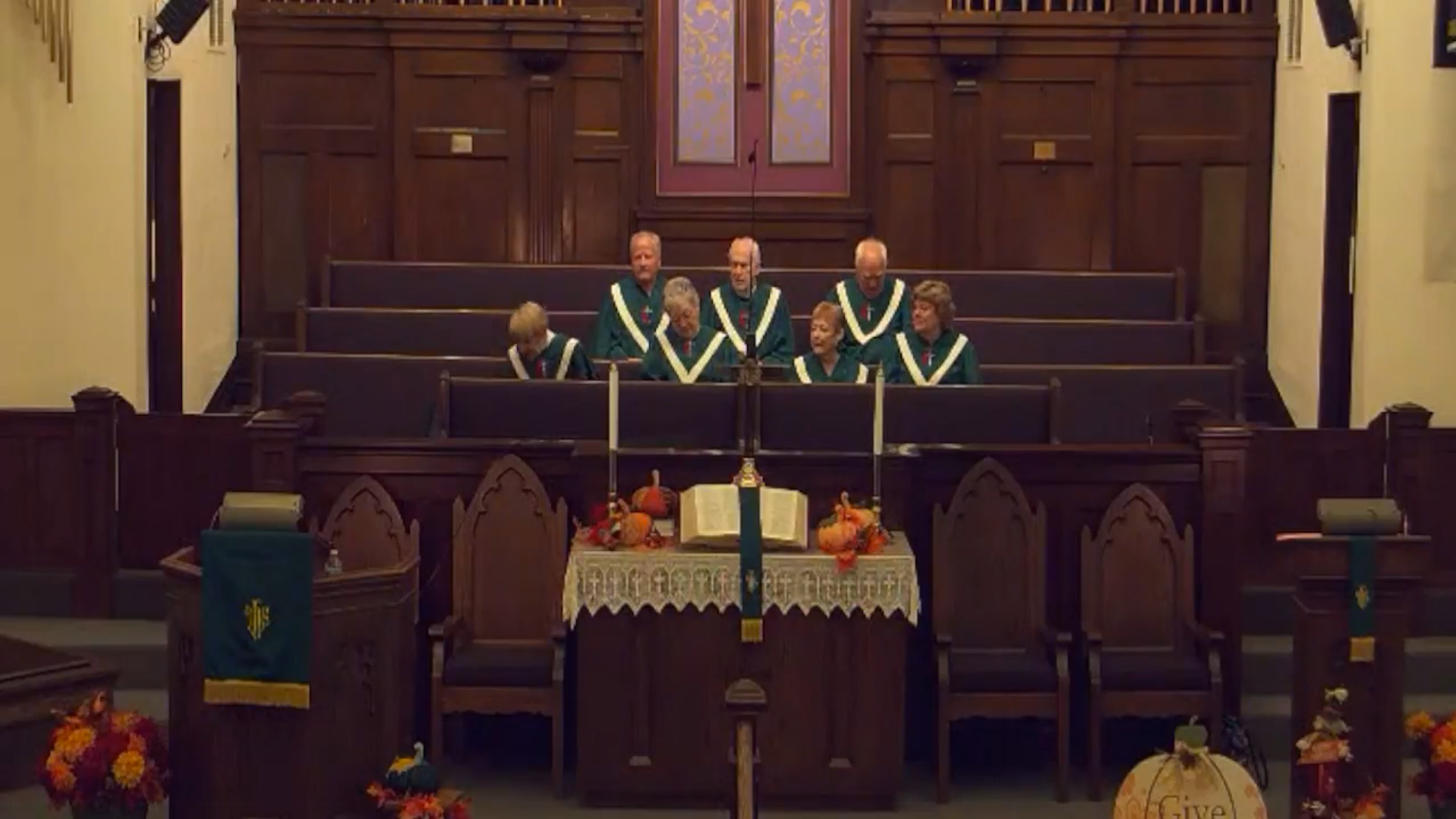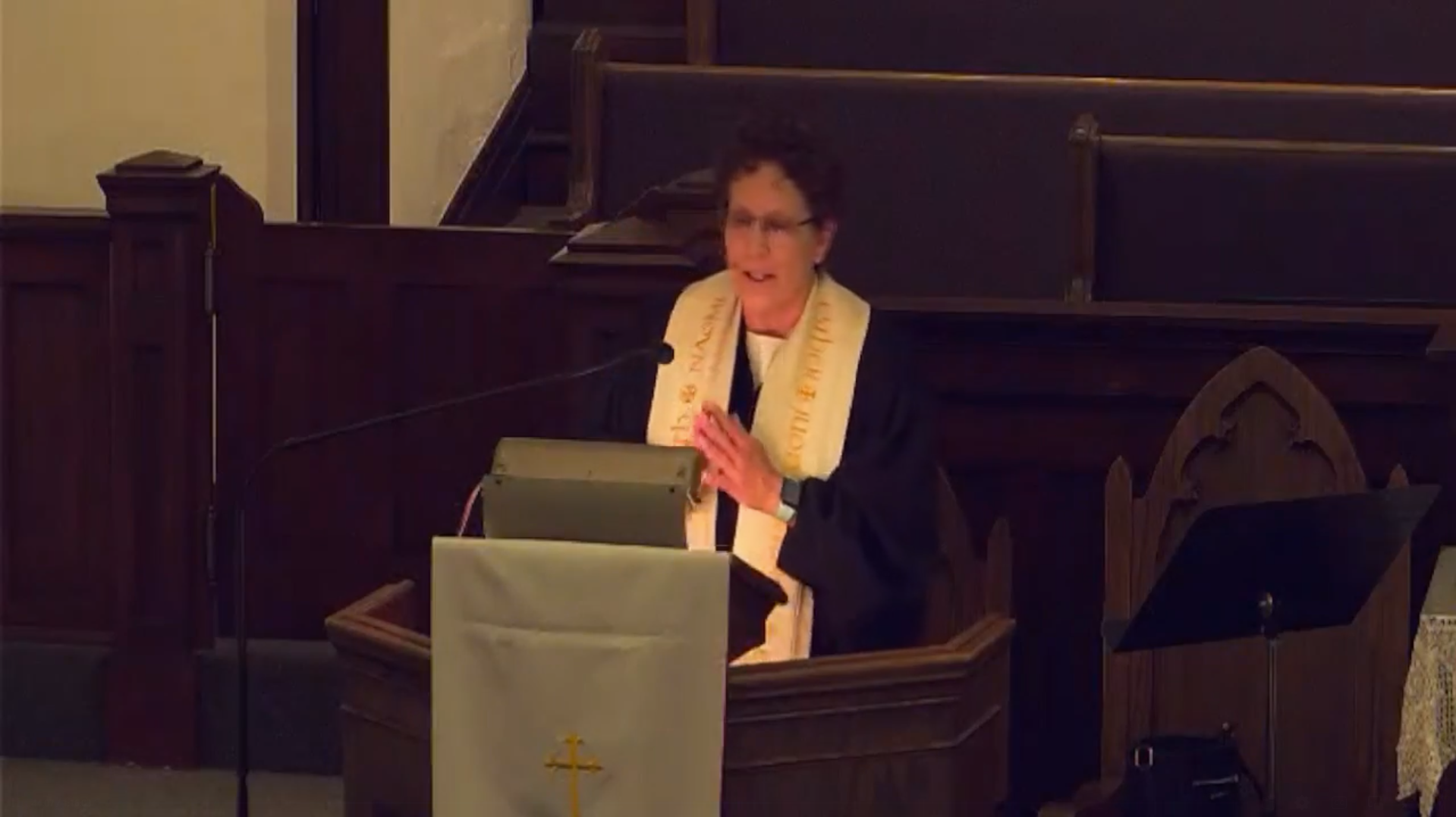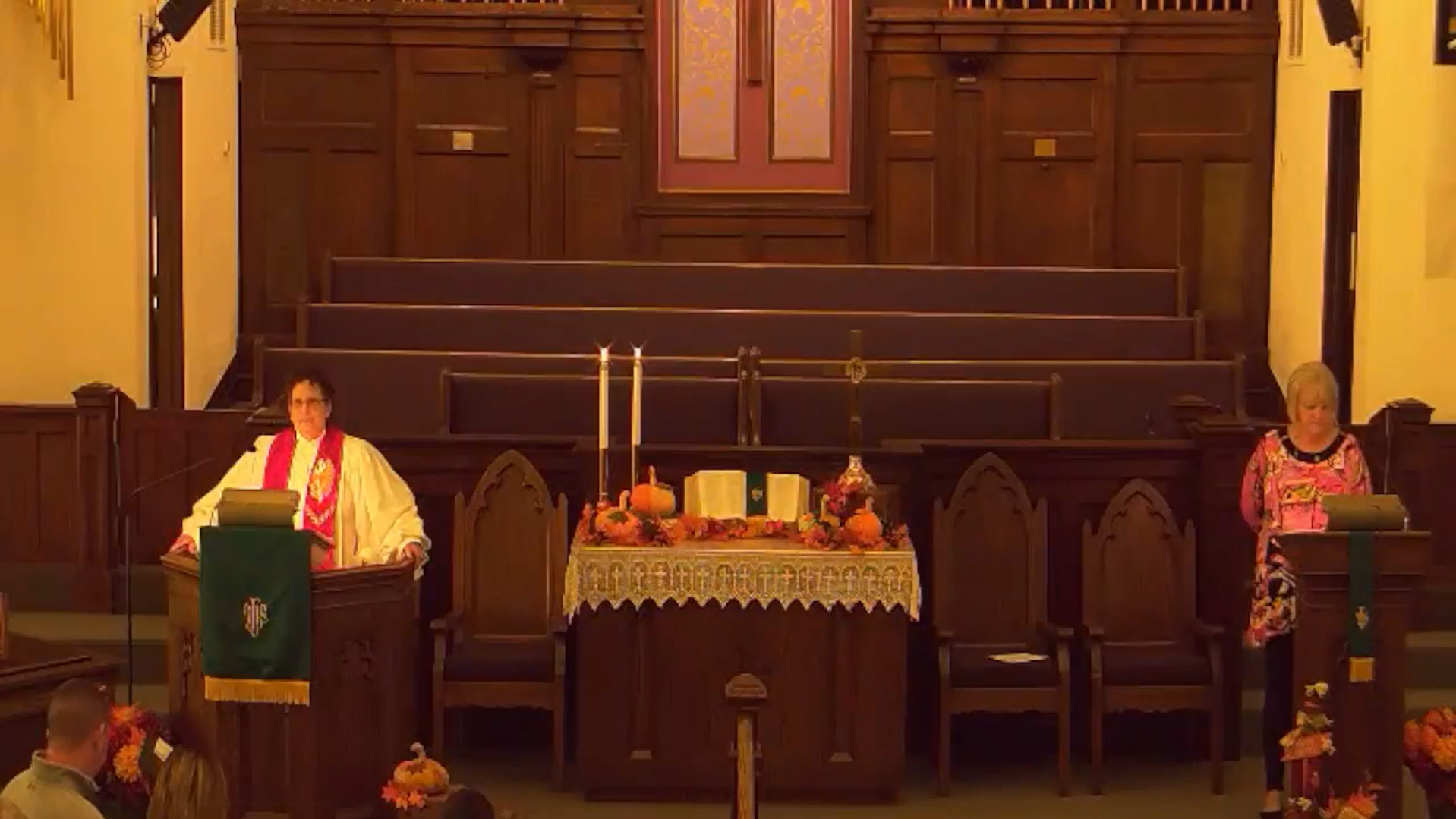
Today’s scripture reminds us that interpretation of the law has always been difficult for humanity. We have never been of one mind. However, if we filter our interactions through the lens of love, it is possible to arrive at a consensus. What we put into the world is part of the ongoing creation of the world.

As we recognize our Saints on All Saints Sunday, it's important for us to remember on All Saints Sunday that the faithfulness and legacy of those who have gone before us has not been in vain. Saints are the people who God shines through. Each saint shows us a different part of God.

When Jesus challenges him with the question, “What do you want me to do for you?” I think Bartimaeus surprises the crowd by saying, “Teacher, let me see again.” I think they probably expected him to say, “Don’t you see that I am blind? Give me food. Give me money. I’ve heard that you can do anything.” He was a beggar, after all.
Browse all of the Sermons and Messages
Franciscan Health announced a baby born as the clock struck midnight on New Year’s Eve. He is 6 pounds 10.5 ounces and 20 inches long and born to Alisha and Drew Eggers of Trafalgar. What would you name such a child – Atticus.
This morning I am thinking about music other than the sweet cords and melodies of Christmas. Think back to 1978 when the British Rock Band the Who
sang a song that echoes the words of the story from the Gospel of John, “Who are you?”
There’s something about those minor keyed hymns during Advent. I love them, I want to sing ALL of the Advent minor keyed hymns, but there aren’t enough Sundays and—not one congregation I’ve served has had the patience to make it all the way to Christmas Eve before singing a Christmas Carol or two…or more.
Advent is a season of preparation. At home, people are cleaning, getting out their Christmas decorations and putting up their trees, figuring out what holiday foods to fix, figuring out how to “do” Christmas at this point in the pandemic where things look good for a few days, and then they don’t.
In my years of ministry, I’ve been honored to serve 2 churches who took on major building projects where I was able to be a part of the dreaming, planning, building and living into the finished result.
Scott and I have been packing, filling boxes and doing our best to be ready when the movers arrive. (Since he’s been off preaching at another church for the last 6 weeks, I am again admitting to God and you and everybody that Scott has done the lion-share of that work and I want him to know that I’ve told you that, and am not taking even half credit for all the work he’s done).
I know, it’s an odd text for today, isn’t it? Not one we would expect on the Sunday before Thanksgiving, as we’re thinking ahead to Advent and beginning our preparations for Christmas. We’re thinking about giving thanks. Maybe we’re thinking Baby Jesus. But today’s scripture takes us to one of the last conversations Jesus will have before he’s crucified.
Troubled Israel, as the books of Samuel begins, is waiting. Israel is portrayed as a marginal community. Threatened externally by the power and the pressure of the Philistines, Israel is politically weak and economically disadvantaged. But there is also an internal, moral and spiritual dimension to Israel’s trouble. By the end of the book of Judges, Israel is shown to be a community in moral chaos, engaged in brutality, and betrayed by undisciplined religion.
As Scott and I were raising our three children, we equally encouraged each of them, telling them that they could be and do whatever they wanted to be and do, as long as they were willing to work for it, and to give their best effort. Doing this, they would succeed.
There are some folks who just struggle, you know? Not through any fault of their own, necessarily, just hard times seem to follow hard times. Naomi and her daughters-in-law, Ruth and Orpah have lived together for some time, now. The older woman’s face bears the lines of the greatest heartache, but all have experienced difficult days. They aren’t related by blood, but they are family in every sense of the word; they are bound together by the love that each one of them has lost.
A blind man sits alongside the dusty road, just outside of the city of Jericho. Jesus has been in Jericho, and he’s now heading on down the road to Jerusalem. There are lots of people with him. The disciples are there as always, but a crowd of others have joined the parade, as well.
It’s been an interesting season in my life these past couple of months as I’ve done sermon planning to the end of the year. I’ve thought a lot about what I want to share with you: you will be the last community where I will serve as pastor, and I want to share with you what’s in my heart and mind.
Scott and I have begun the process of packing—okay, I admit he’s done more than I have—and as he has pulled things out of the storage room downstairs, on more than one occasion, I’ve said—oh, so that’s where that’s been.
Every Sunday when we gather to worship together, we’re reminded that our mission, our purpose, is to make disciples of Jesus Christ for the transformation of the world. We say that we do that by loving God, loving others and serving others. That’s the plan. That’s the foundation of why we do what we do as a church. We gather on Sunday mornings to worship God and to be empowered for mission and ministry and outreach.
There are moments in life that take our breath away, aren’t there? Or, if they don’t take our breath away, these moments in life give us new breath. You and I may sometimes feel like the dry, disconnected bones described in Chapter 37 of the book of Ezekiel. We may feel like there’s no life in us. But then, God gives us this moment, this experience (37:5), when God’s breath enters us and we come to life.
Judie shared with you this morning the Bible she received from her teacher when she was confirmed in the faith. I’ve brought along my 3rd grade Bible that I received at Epworth Methodist Church in Fort Wayne. Mine doesn’t have my name engraved on it and it’s not in as good shape as Judie’s Bible is, though I know from Judie’s story that she used hers more than I did mine. I’m glad that we have more kid-friendly translations these days because the Revised Standard Version was too complicated for this 3rd grader to understand. The small print and lack of pictures wasn’t so inviting.
My computer is one of those things I depend on most every day. I write sermons and letters and documents that are important to the work and the life we do here together. I can connect to the internet and find the answers to most any question I might have. I can order things I need and don’t need, pay bills, listen to music, to broadcasts and other people’s sermons.
Jesus and the disciples have been traveling along, off the beaten path. There have been healings and miracles, teaching and tragedy. If you look back in the 6th chapter of the gospel of Mark, you’ll see that Jesus has sent his disciples out to preach, they’ve dealt with John the Baptist, they’ve fed the 5000 with 5 loaves and 2 fish, and they’ve seen Jesus walk on water and calm the wind, out in the middle of the Sea of Galilee. They’ve been working hard, they’ve seen and done some amazing things out there in the trenches. Now they’ve sit down along the road for a bite to eat.
Life is hard. It can be good and blessed and wonderful…and sometimes it can be good for an extended period of time, one good thing after the other, like you’re riding a wave. Other times it’s just the opposite: you wonder when the other shoe is going to drop. What’s next? What now? How can this be? Life can be hard.
For some of us, faith is invisible and impossible. For some people faith is some far-out idea. Occasionally, you and I talk about blind faith. The faith I have in mind for you today is not blind. I am not asking you to do something that is against your good judgment or your good reason. Faith is seeing fully. Sometimes we talk about faith as being some kind of impossible dream or wishful thinking. The faith of which I speak today is not just a pipe dream.
Alice Lee Humphreys in her book, Angels in Pinafores, tells about her experiences as a first-grade teacher. She tells about one little girl who came to school one winter day wearing a beautiful white angora beret with white mittens and a matching muff. As she was coming through the door, a mischievous little boy grabbed the white muff and threw it in the mud. After disciplining the little boy, the teacher sought to comfort the little girl.
I trust in the last 4 weeks as we’ve talked about Travel as a Spiritual Act, the different places where you’ve visited have come to mind. Our emphasis these past weeks as we’ve talked about travel has focused on the people and the relationships we’ve gained, and on the lessons we’ve learned about our similarities and differences.
Whenever Scott and I have headed off on an adventure, he always tells me after maybe a week that he’s ready to go back home. For me, it’s taken about that amount of time to “let go” of the “to do” lists that never seem to get fully done and so my brain starts churning again, like the “pop-up” reminders that keep appearing on my computer.
As we continue this series Quest: Travel as a Spiritual Act, and look at this week’s focus on “reflection”, I decided I would like to share several experiences with you I’ve had—during seminary and afterwards—going to places I never thought I’d go and learning things I didn’t realize I needed to learn.

